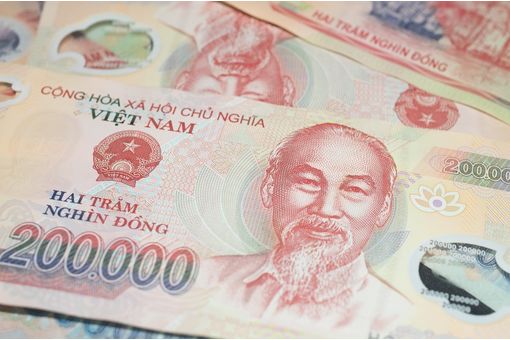Interviews
Concluding Doha Round is priority for G20 leaders, Lamy
28 Jun '10
5 min read
Director-General Pascal Lamy, in a speech to G20 business leaders in Toronto on 26 June 2010, cited the role of the multilateral trading system in keeping protectionism in check during the financial crisis. He said concluding the Doha Round would provide a welcome stimulus package to the world economy. This is what he said:
I would like to congratulate you for putting together this impressive gathering of business leaders to discuss drivers of sustainable growth.
This meeting takes place as we seem to be emerging from the most severe economic crisis in decades; a crisis that has shaken many of your businesses and shed millions of jobs.
And as we may be turning the corner of the crisis, strengthening world economic recovery is key to repairing the damage that has been caused by the financial crisis. Today we need fiscal consolidation as much as we need economic growth.
Open trade and international investment are central to the exercise. They can help drive global growth and support macroeconomic adjustment to bring various imbalances back to economically and politically sustainable levels.
This is why trade — and its role of engine of growth — needs to be an integral part of the framework for sustainable, balanced growth which the G20 has been putting together since the Pittsburgh summit.
Trade was a major casualty of the financial crisis. It contracted sharply from the last quarter of 2008, and in 2009 fell by an unprecedented 12 percent. The ratio of global trade to GDP declined by one-third as international supply chains magnified the contraction and distributed it worldwide, reflecting just how deeply integrated the global economy has become.
The main cause of the contraction in trade was the collapse of aggregate demand. There is no surprise in that, given how highly leveraged consumption had become in North America and parts of Europe by 2008 and how quickly that was undermined by the choking off of bank credit.
The credit squeeze hit trade through shortages of short-term trade-financing as well, such as letters of credit which are vital for many developing countries as well as small and medium-scale businesses worldwide. The G20 support package for trade finance that was agreed in London last year has helped substantially to resolve this problem. But for business in many low-income developing countries, the availability and affordability of trade finance remains a serious constraint. This is why it is important that there be no rush to exit this package and that more targeted trade finance is provided to address these specific needs.
More surprising, perhaps, is that trade protectionism played a limited part in the contraction of trade last year. Protectionism is probably the only crisis dog that did not bark so far. Careful monitoring of trade restrictions by the WTO shows some slippage by G20 countries, but overall the impact of new restrictions has been limited — no more than 1 percent of world trade flows has been affected since 2008. The traditional barometer of protectionist pressure is increased demand from the private sector for trade remedies, yet this has not materialised: anti-dumping, countervailing and safeguard action remain within pre-crisis ranges.
I would like to congratulate you for putting together this impressive gathering of business leaders to discuss drivers of sustainable growth.
This meeting takes place as we seem to be emerging from the most severe economic crisis in decades; a crisis that has shaken many of your businesses and shed millions of jobs.
And as we may be turning the corner of the crisis, strengthening world economic recovery is key to repairing the damage that has been caused by the financial crisis. Today we need fiscal consolidation as much as we need economic growth.
Open trade and international investment are central to the exercise. They can help drive global growth and support macroeconomic adjustment to bring various imbalances back to economically and politically sustainable levels.
This is why trade — and its role of engine of growth — needs to be an integral part of the framework for sustainable, balanced growth which the G20 has been putting together since the Pittsburgh summit.
Trade was a major casualty of the financial crisis. It contracted sharply from the last quarter of 2008, and in 2009 fell by an unprecedented 12 percent. The ratio of global trade to GDP declined by one-third as international supply chains magnified the contraction and distributed it worldwide, reflecting just how deeply integrated the global economy has become.
The main cause of the contraction in trade was the collapse of aggregate demand. There is no surprise in that, given how highly leveraged consumption had become in North America and parts of Europe by 2008 and how quickly that was undermined by the choking off of bank credit.
The credit squeeze hit trade through shortages of short-term trade-financing as well, such as letters of credit which are vital for many developing countries as well as small and medium-scale businesses worldwide. The G20 support package for trade finance that was agreed in London last year has helped substantially to resolve this problem. But for business in many low-income developing countries, the availability and affordability of trade finance remains a serious constraint. This is why it is important that there be no rush to exit this package and that more targeted trade finance is provided to address these specific needs.
More surprising, perhaps, is that trade protectionism played a limited part in the contraction of trade last year. Protectionism is probably the only crisis dog that did not bark so far. Careful monitoring of trade restrictions by the WTO shows some slippage by G20 countries, but overall the impact of new restrictions has been limited — no more than 1 percent of world trade flows has been affected since 2008. The traditional barometer of protectionist pressure is increased demand from the private sector for trade remedies, yet this has not materialised: anti-dumping, countervailing and safeguard action remain within pre-crisis ranges.
Popular News
Leave your Comments
Editor’s Pick
































-Ltd..jpg?tr=w-120,h-60,c-at_max,cm-pad_resize,bg-ffffff)





.jpg?tr=w-120,h-60,c-at_max,cm-pad_resize,bg-ffffff)
.jpg?tr=w-120,h-60,c-at_max,cm-pad_resize,bg-ffffff)






